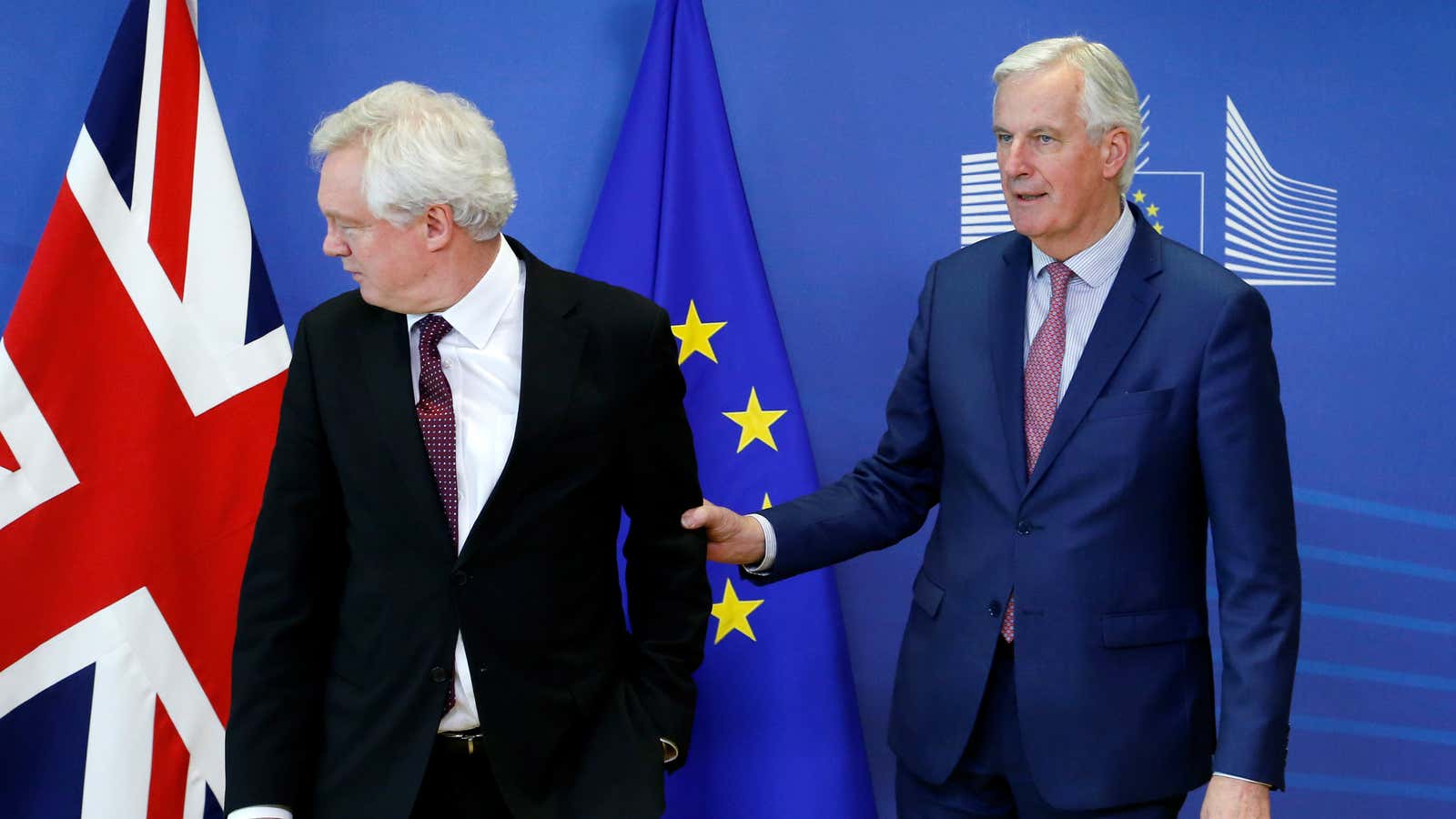So far, the UK’s withdrawal from the European Union has been a messy process of bluffs, rumors, red lines, and awkward dinners. Today, there was finally news of real import: After the UK formally leaves the bloc in March 2019, a transition period will kick in that will essentially keep things the same until the end of 2020. This transition period will give businesses and investors more time for prepare for life outside the bloc. (Here’s the 129-page, color-coded draft agreement.)
The removal of a major source of uncertainty cheered traders, who sent the UK currency up about 1% against the dollar and 0.8% against the euro, which are big intraday moves in those markets.
Traders, amongst others, worried that at the end of March 2019, when the UK formally leaves the EU, Britain would crash out of the bloc in a disorderly way, entering into a regulatory and operational nightmare as it scrambled to replace EU-imposed laws. Now, a transitional period is set to last from March 2019 to the end of December 2020. The UK still has to abide by most EU rules during this period, but loses its part in decision-making processes.
The period is slightly shorter than the British government had initially suggested, but allows the UK to negotiate new trade deals that would come into effect at the end of the transition. (Since trade deals are handled by the EU on behalf of all members, the UK is not allowed to negotiate new ones as long as it remains in the bloc.) There has been an agreement on the UK’s financial settlement as well as the rights of EU citizens living in the UK (and vice versa)—people who move during the transition period have the same rights as people who settled before Brexit.
While this deal suggests that the divorce process might be less choppy, not everything is worked out just yet. The issue of what to do about Northern Ireland’s border with the Republic of Ireland remains a contentious topic that still needs to be resolved. Neither side wants a hard border between the two, but that is difficult to reconcile with EU rules that the UK has stressed it will not follow after Brexit. Right now, the deal includes an emergency “backstop” to avoid a hard border, which would keep Northern Ireland in the EU’s single market and the customs union. This is something the British government has thus far opposed. There are also other disagreements over judicial co-operation, data protection, and intellectual property.
The agreement still needs to be signed off by EU leaders at a summit later this week. And the UK and EU still need to ratify the complete withdrawal agreement this year.
Despite this deal, the pound is still a long way from recuperating its losses since the Brexit referendum in June 2016. The economic impact of Brexit is already being felt in lower living standards, as the country’s economy is missing out on much of the global growth upswing, which has been particularly strong in—wait for it—the European Union.
